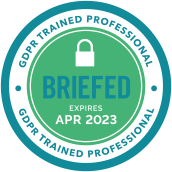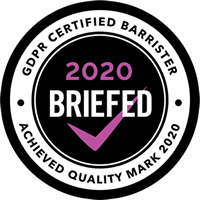
Edward Davies QC and Matthew Parfitt consider decision to put Lord Grade’s media investment company into administration
28th April 2020
In Re Gate Ventures plc [2020] EWHC 709 (Ch) the court considered a creditor’s application for an administration order over Gate Ventures plc (Gate Ventures).
Gate Ventures is a media investment company. It was established with the backing of a number of figures who are well known in the British media and arts, including Lord Grade, Geoffrey Morrow and Michael Linnet. For a time, one of its directors was the Duchess of York.
Gate Ventures was promoted heavily in the Far East, and a large number of Chinese investors acquired small shareholdings. In March 2015, shares in Gate Ventures were admitted to trading on AIM, but it was de-listed after a few months. The company was subsequently listed on Nasdaq First North in Copenhagen.
The company experienced mounting financial difficulties. By the time of the creditor’s application, upwards of £24.5 million had been invested by shareholders, but Gate Ventures’ balance sheet showed net assets of only about £5 million. The bulk of the loss, some £15 million, was attributed to administrative expenses, and the board was facing criticism for the level of expenses incurred by its former chairman, Dr Johnny Ho (Dr Ho). The company had not filed accounts, nor had it paid its accountants or its lawyers. In addition, the directors had fallen into dispute with Zheng Yongxiong (Mr Zheng), one of its principal Chinese investors.
It was Mr Zheng who initiated the administration proceedings. Mr Zheng’s standing was founded upon a prospective debt owed to him by Gate Ventures, in the form of a loan of £2.5 million due in April 2020.
This was the second time that Mr Zheng had applied for an administration order in respect of Gate Ventures. His previous application had been dismissed by ICC Judge Prentis in a judgment delivered on 24 September 2019. On that occasion, as a matter of discretion, and having heard certain evidence regarding projected income and proposed asset realisations, the judge concluded that the company was better off being left in the hands of its directors. However, unusually, the judge imposed an obligation on the company to provide Mr Zheng with fortnightly updates regarding its financial position.
As revealed by those updates, Gate Venture’s position did not improve, and it soon became clear that the forecast income and asset realisation plans that Gate Ventures had relied upon in defeating the first administration application were not coming to fruition. The failures in this regard were sufficiently serious that Mr Zheng sought and obtained permission to appeal against the dismissal of his first application on the ground that the court had been misled as regards the company’s prospects (per Zacaroli J, in Zheng Youngxiong v Gate Ventures plc [2020] EWHC 645 (Ch)).
In the meantime, Mr Zheng also commenced a second administration application. Unlike on the previous application, this time Mr Zheng had the express support of a number of the Chinese investors with small shareholdings, one of whom, Ms Hui Yang, applied for and obtained permission to be represented at the hearing of the administration under rule 3.12(1)(j) IR 2016.
This second administration application, like the first, came before ICC Judge Prentis.
At the outset of the hearing, Gate Ventures, represented in court by Lord Grade, sought an adjournment to allow more time to raise investment, failing which the board would take steps to put Gate Ventures into members’ voluntary liquidation. That application failed. In refusing the adjournment, ICC Judge Prentis made the point that, to the extent that Gate Ventures did retain business opportunities, it was unlikely that these could be exploited if it were to go into liquidation. Accordingly, the court held that the administration application should proceed.
Decision on the administration application
The court granted the administration order. ICC Judge Prentis concluded that the express requirements for an administration order under paragraph 11 Schedule B1 IA 1986 – ie (a) that the company is or is likely to become unable to pay its debts, and (b) that the administration order is reasonably likely to achieve the purpose of administration (as described in paragraph 3 Schedule B1 IA 1986) – were satisfied, and decided, on this second occasion, that it was appropriate to exercise his discretion in favour of making the order.
Dealing with the express requirements under paragraph 11, it was common ground that Gate Ventures would not, as matters stood, be able to repay Mr Zheng’s loan, which was going to fall due within a matter of weeks. Gate Ventures had not achieved the realisations and income set out in the proposals that the board had previously put forward. The judge therefore held (at para 28) that Gate Ventures was unable to pay its debts as they fell due – although it would have been more apt if this had been put in terms that Gate Ventures was “likely to become” unable to pay its debts as they fell due.
Accordingly, although Gate Ventures appeared to be solvent on a balance sheet basis, and no other creditors were pressing for payment, the insolvency element of the paragraph 11 test was satisfied on a cashflow basis.
Regarding the purpose of administration, the court was satisfied that the administration order was reasonably likely to achieve the purpose of administration, because there was more than a “fanciful prospect” that the administrators, with the assistance of specialists, could obtain new investment to enable Gate Ventures to be rescued as a going concern, within the meaning of paragraph 3(1)(a) Schedule B1 IA 1986. In this context, the court particularly focused upon Gate Ventures’ 50% interest in its joint venture with the Duchess of York, Ginger & Moss Ltd, which might still be exploited profitably with the benefit of further investment.
For similar reasons, the court considered that the administration would be reasonably likely to achieve a better realisation for Gate Ventures’ creditors as a whole than if the company were to be wound up, so that, if need be, Mr Zheng could also rely upon the purpose of administration under paragraph 3(1)(b) Schedule B1 IA 1986. ICC Judge Prentis reached this view notwithstanding that, as he recognised, a liquidation in this case might not entail a ‘fire sale’, since there was reason to believe that the directors might be able to pass a statutory declaration of solvency (under s 89 IA 1986) so as to enable the winding up to be by way of a members’ voluntary liquidation.
That left the question of discretion. The situation had moved on in a number of ways since the dismissal of the first administration application. Notably, Gate Ventures had conspicuously failed to achieve the levels of income that had been forecasted on the previous occasion, and the directors now (following the dismissal of their adjournment application) accepted that there was a need for Gate Ventures to enter into some form of collective insolvency proceedings.
However, the directors’ preference remained a members’ voluntary liquidation, as opposed to the administration sought by Mr Zheng. The other possibility was that the court could, under paragraph 13(1)(e) Schedule B1 IA 1986, elect to treat the administration application as a winding up petition and then make a winding up order.
Whichever procedure was adopted, there would be investigations into the way in which Gate Ventures had been managed by the directors, including as regards the “very significant” sums that were allowed to be spent on “extraordinary frivolities” by Dr Ho.
The need for such investigations was a matter of great importance to the supporting shareholders, who had identified a number of other questionable transactions and potential misapplications of company assets, and who wanted any potential claims for breach of duty to be pursued. From the shareholders’ perspective, however, the rescue of Gate Ventures naturally afforded a considerably better outcome than a liquidation, given their ongoing stake in the company, and this gave them a particular interest in administration being chosen as the appropriate procedure.
One factor that told in favour of administration was that, for the purposes of any potential claims in respect of historic transactions under s 238 IA 1986 (transactions at an undervalue) and s 239 IA 1986 (preferences), the ‘relevant time’ under s 240 IA 1986 would be determined by reference to when the administration application was commenced, whereas, if the court were to treat the administration application as a winding up petition and make a winding up order, the ‘relation back’ period would be from the date of the winding up order itself (s 129(1A) IA 1986). Accordingly, in an administration, the period over which the office holder would be able to explore claims would extend further back than would be the case if the court instead made a winding up order. In a voluntary liquidation, the time would run from the date of the winding up resolution, and so allowing the directors more time to pursue that avenue would mean an even more curtailed period for potential claims. Therefore, choosing either form of winding up over administration would reduce the scope for potential claims against the directors.
Other points that militated in favour of an administration order, and which represented departures from the position that had pertained on the previous occasion, included the following: Mr Zheng had made available funding for the administration, and had accepted that the matters to be investigated by the office holders would include the claim that had been raised by Gate Ventures against him; the proposed administrator had provided evidence about his capabilities and proposals regarding the administration; and, contrary to the impression that had previously been given to the court, it now appeared that the making of an administration order would not automatically result in Gate Ventures losing its listing on Nasdaq First North.
Finally, regarding the suggestion of a members’ voluntary liquidation, the court referred to the practical challenges of arranging the necessary meeting of the members, most of whom were Chinese, and also, more fundamentally, to the point that there was no certainty that a special resolution in favour of a winding up, requiring 75% of the votes, would be passed.
For these reasons, the court granted the application for an administration order over Gate Ventures. In order to avoid any appearance of lack of independence, the court appointed an additional administrator, alongside the two administrators that had been nominated in connection with the application, on the basis that this additional office-holder would have particular responsibility for the conduct of the investigation of any claim against Mr Zheng.
Commentary
Quite apart from the notable cast involved in the case, the administration proceedings in respect of Gate Ventures are of interest for a number of reasons:
- The order made by ICC Judge Prentis on the first administration application, requiring Gate Ventures to provide fortnightly updates on its financial position to Mr Zheng, even though that application was dismissed, was highly unusual. The making of this order (the jurisdictional basis for which is unclear) demonstrates the court’s preparedness to intervene in novel ways where concerns remain about the viability of a company.
- It was this reporting regime that exposed the fact that the evidence given on behalf of Gate Ventures on the first administration application as regards income forecasts and planned asset realisations had been hopelessly unreliable; indeed, in certain respects, arguably misleading. This opened the way for a second administration application by the same creditor, Mr Zheng, on the basis of the same debt as before.
- The case illustrates the utilisation of the provisions of rule 3.12(1)(j) IR 2016, which certain shareholders relied upon in seeking the court’s permission to be represented at the hearing of the administration application. To establish that they had an interest that justified their appearance at the hearing, the shareholders relied upon the fact that Gate Ventures appeared to be balance sheet solvent (whilst pointing out that, following Re Farnborough Aircraft.Com Ltd [2002] EWHC 1224 (Ch), per Neuberger J, a shareholder would not necessarily be required to show a tangible financial interest in this context). Unusually, in this case, shareholders were seeking to support the administration, believing that it represented the best chance for the rescue of the company.
- The case also illustrates the point that, in relation to the exercise of the court’s discretion, the need to investigate questionable conduct on the part of a company’s directors may bear heavily in favour of the grant of an administration order.
- Finally, the appointment of an additional administrator with specific responsibility for a particular aspect of the administration, albeit with joint overall responsibility with the other appointees, shows that in highly contentious situations the court is prepared to be creative in order to ensure that there can be no suggestion of lack of independence in the conduct of the administration.



